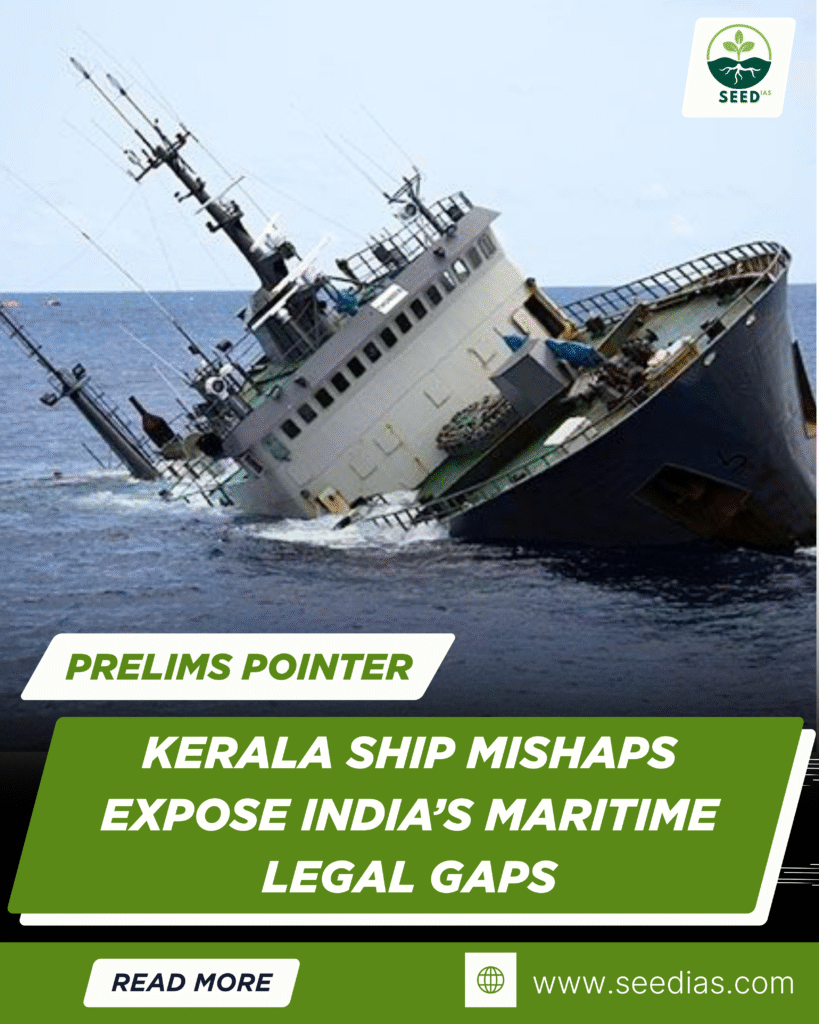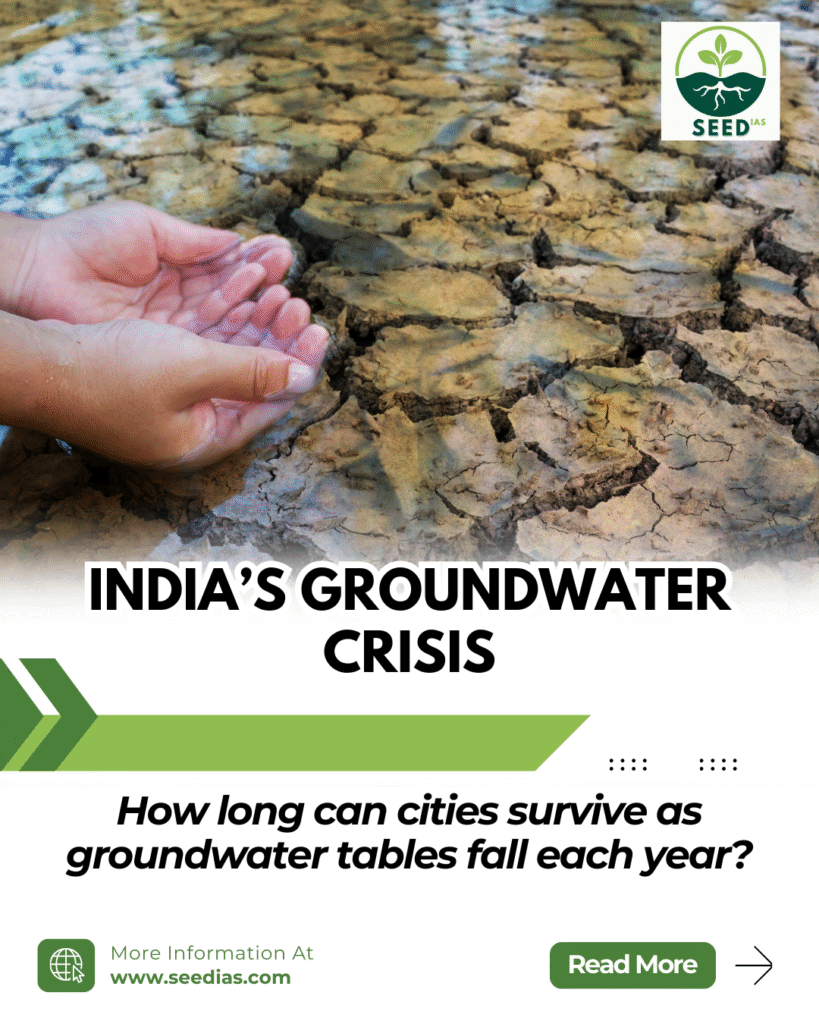Why in NEWS
Recent fire and sinking incidents of merchant vessels off Kerala’s coast have sparked debate over global shipping liability and India’s limited legal cover to claim damages.
Key Terms and Concepts
| Term | Explanation |
|---|---|
| IMO (International Maritime Organization) | UN agency that sets global standards for safety, pollution control, and liability in shipping. |
| Ballast Water Convention (2004) | Regulates discharge of ballast water to prevent spread of invasive aquatic species. |
| HNS Convention (2010) | Ensures compensation for damage caused by hazardous and noxious substances carried by ships. |
| Flags of Convenience (FOC) | Practice where ship owners register vessels in countries with lenient regulations for operational ease. |
| Protection and Indemnity (P&I) Clubs | Insurance associations providing liability cover for shipowners, especially for cargo and environmental claims. |
| Polluter Pays Principle | Principle that the party responsible for pollution must bear the costs of managing it. |
| MARPOL | International Convention for the Prevention of Pollution from Ships — key legal tool for tackling oil and other pollution. |
| Nairobi Convention (2007) | Assigns responsibility of wreck removal to shipowners, ensuring safe navigation and environmental protection. |
News Summary
- Ships near Kerala’s coast caught fire and sank, raising concerns about who pays for the damage — to both environment and property.
- Globally, shipping is governed by rules made by the IMO, which countries like India follow by passing laws.
- However, India has not signed important agreements like the Ballast Water Convention and HNS Convention, which weakens its legal claim to damages.
- Often, ships operate under Flags of Convenience, meaning they are registered in countries with weak laws, making enforcement difficult.
- Shipowners (not cargo owners) are liable for losses and environmental harm, and are usually insured by P&I Clubs.
- For cargo, there’s a limit to how much compensation can be claimed. For environmental damage, there’s no limit, and the polluter must pay.
- India has signed the Nairobi Convention, so shipowners are responsible for clearing wrecks.
In a Nutshell (Mnemonic Code)
“FIRE POLLUTES, LAW IGNORES, INDIA LOSES”
Breakdown:
INDIA LOSES – Misses out on compensation and stronger legal standing.
FIRE – Refers to maritime accidents like ship fires off Kerala.
POLLUTES – Oil and hazardous substances pollute the environment.
LAW IGNORES – India hasn’t ratified key conventions like Ballast Water & HNS.
Prelims Practice Questions
- Which of the following conventions has India not ratified?
A. Nairobi Convention
B. Ballast Water Convention
C. MARPOL
D. SOLAS - The principle that holds the polluter liable for the environmental damage is called:
A. Beneficiary Pays Principle
B. Shared Responsibility Principle
C. Polluter Pays Principle
D. Precautionary Principle - What are Protection and Indemnity (P&I) Clubs primarily responsible for?
A. Regulating port authorities
B. Insuring ships against cargo and environmental liabilities
C. Salvaging wrecked ships
D. Certifying ship safety standards
Answer Key for Prelims
| Q.No | Answer | Explanation |
|---|---|---|
| 1 | B | India hasn’t signed the Ballast Water or HNS Conventions. |
| 2 | C | “Polluter Pays” is a principle under MARPOL and other conventions. |
| 3 | B | P&I Clubs provide insurance to shipowners for cargo and pollution liabilities. |














